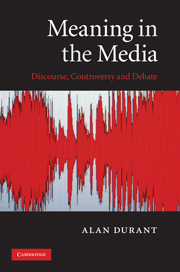Book contents
- Frontmatter
- Contents
- Acknowledgements
- Introduction
- Part I Communication failure and interpretive conflict
- 1 From personal disagreement to meaning troublespot
- 2 Signs of trouble
- 3 Different kinds of meaning question
- Part II Making sense of ‘meaning’
- Part III Verbal disputes and approaches to resolving them
- Part IV Analysing disputes in different fields of law and regulation
- Part V Conclusion
- References
- Index
3 - Different kinds of meaning question
Published online by Cambridge University Press: 05 June 2012
- Frontmatter
- Contents
- Acknowledgements
- Introduction
- Part I Communication failure and interpretive conflict
- 1 From personal disagreement to meaning troublespot
- 2 Signs of trouble
- 3 Different kinds of meaning question
- Part II Making sense of ‘meaning’
- Part III Verbal disputes and approaches to resolving them
- Part IV Analysing disputes in different fields of law and regulation
- Part V Conclusion
- References
- Index
Summary
Introduction
This chapter turns more directly to the form in which questions about meaning are raised. I show how meaning issues are not reducible to a general interrogative: ‘what does this mean?’ In media disputes and controversies, ‘meaning questions’ reflect a number of different, more specific categories. Each raises its own questions about what a meaning is and what might count as evidence in support of or against it.
Limits of interpretation
Imagine a reader of George Orwell's Animal Farm who believes the book is an entertaining story about personified animals (as many books for children are) but who resists any suggestion that it might be about anything else. Should that reader be encouraged to see that ‘the meaning’ of the book, drawing on what is sometimes called ‘the method of Aesop’, lies in how it uses a fictional uprising of pigs and other animals at Manor Farm as a vehicle for political allegory? If so, its meaning is about corruption of revolutionary impulses and the rise of Stalinism, as well as about human hypocrisy in general, rather than about either farms or animals. You might try to persuade such a reader towards those arguably richer meanings by focusing on episodes or themes to which the narrative gives particular prominence. Or you might highlight parallels between what happens in the book and what happened in twentieth-century European political history. Or you might trace the author's stated concerns in this and his other books.
- Type
- Chapter
- Information
- Meaning in the MediaDiscourse, Controversy and Debate, pp. 48 - 64Publisher: Cambridge University PressPrint publication year: 2010



